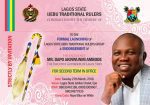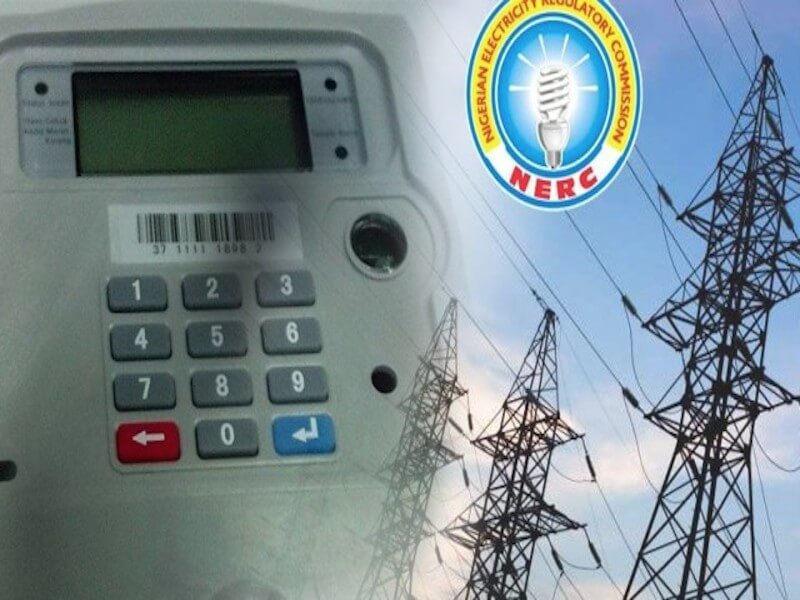5 Things To Know Before Renting A House In Osun


Renting a house is a significant decision that involves various considerations, and when it comes to settling in the serene state of Osun in Nigeria, understanding the local dynamics becomes paramount.
Before embarking on the journey of renting a house in Osun, it is crucial to be well-informed about the unique aspects that define the rental landscape in this region.
By delving into these crucial aspects, individuals seeking accommodation in Osun can make informed decisions that contribute to a positive and harmonious living experience.
Osun, known for its rich cultural heritage and natural beauty, offers a distinct living environment that warrants a thoughtful approach to the rental process. Hence, Osun Defender has unveiled 5 things to know before renting a house in Osun State. They are;
- Legal Framework
Understanding the legal framework is crucial before renting a house in Osun, Nigeria. The primary legislation governing tenancy arrangements in Osun is the Tenancy Law, which outlines the rights and responsibilities of both landlords and tenants.
This law provides a framework for creating legally binding lease agreements and specifies the conditions under which a landlord can terminate a tenancy. Prospective tenants should familiarize themselves with the key provisions of this law to ensure they are aware of their rights and obligations throughout the tenancy period.
One significant aspect of the legal framework in Osun is the documentation of the lease agreement. It is essential for both parties to have a written and signed lease that clearly outlines the terms and conditions of the tenancy. This includes details such as the duration of the lease, the agreed-upon rent, any security deposit requirements, and the responsibilities of both the landlord and tenant.
The lease agreement serves as a legally binding document that can be referred to in case of disputes or disagreements during the tenancy. Additionally, tenants should be aware of the legal procedures for eviction and the conditions under which a landlord can terminate a tenancy. The Tenancy Law in Osun typically provides specific grounds for eviction, and landlords must adhere to these conditions to ensure a lawful and fair process. Understanding these legal aspects empowers tenants to protect their rights and ensures a transparent and lawful renting experience in Osun.
- Location Analysis
Conducting a thorough location analysis is essential before renting a house in Osun, Nigeria. One critical aspect to consider is the safety of the neighborhood.
Investigate crime rates and community safety measures to ensure the chosen location aligns with your personal comfort and security standards. Additionally, assessing the proximity to essential services such as hospitals, schools, markets, and public transportation is crucial for daily convenience. Being well-connected to these amenities contributes significantly to a comfortable and practical living experience in Osun.
The accessibility of the chosen location is another key factor in the analysis. Evaluate transportation options and road networks to ensure easy movement within Osun and to neighboring areas.
Adequate transportation infrastructure can impact your daily commute, especially if you work or study in specific locations. Understanding the accessibility of the rental property helps in making informed decisions about convenience and potential travel challenges.
Furthermore, consider the overall ambiance and environment of the neighborhood. Each area in Osun may offer a unique living experience, from bustling urban centers to quieter suburban or rural settings. Take the time to explore the local community, interact with potential neighbors, and gauge the atmosphere to ensure that it aligns with your lifestyle preferences. A comprehensive location analysis ensures that the chosen rental property not only meets practical needs but also enhances your overall quality of life in Osun.
- Utilities and Maintenance
Understanding utilities and maintenance considerations is crucial when renting a house in Osun, Nigeria. Firstly, clarify which utilities are included in the rent and which ones are the responsibility of the tenant. This typically includes water, electricity, and sometimes waste disposal. Having a clear understanding of utility costs helps in budgeting and prevents unexpected expenses. Additionally, inquire about the reliability of these services in the area to anticipate any potential disruptions and plan accordingly.
Maintenance responsibilities and procedures should also be clarified before entering into a rental agreement. Determine what aspects of maintenance fall under the landlord’s obligations and what the tenant is responsible for. This may include routine repairs, pest control, and general upkeep of the property.
Documenting the condition of the house before moving in through a thorough inspection can help prevent disputes over maintenance issues later on. Establishing open communication with the landlord regarding maintenance concerns is essential for a prompt resolution of any issues that may arise during the tenancy.
Furthermore, it’s advisable to be aware of any specific rules or guidelines related to utilities and maintenance outlined in the lease agreement. This ensures that both parties are on the same page regarding expectations, reducing the likelihood of misunderstandings throughout the tenancy.
By being well-informed about utilities and maintenance considerations, tenants in Osun can foster a positive and mutually beneficial relationship with their landlords, contributing to a smooth and enjoyable living experience.
- Lease Terms
Understanding lease terms is essential before renting a house in Osun, Nigeria. Firstly, carefully review the duration of the lease agreement. Determine whether it’s a short-term or long-term lease and consider how well it aligns with your living preferences and future plans. Shorter leases may offer flexibility, while longer leases provide stability.
Additionally, inquire about the terms for lease renewal or extension if you anticipate the need to stay beyond the initial agreement. Secondly, thoroughly examine the rent amount and the schedule for payments. Ensure you are aware of the frequency (monthly, quarterly, etc.) and the acceptable methods of payment. Some landlords may require advance payment of several months’ rent, so clarifying these details beforehand helps you plan your budget effectively. It’s also important to discuss any potential rent increases during the tenancy and whether there are penalties for late payments.
Lastly, scrutinize any additional terms and conditions specified in the lease agreement. This may include rules regarding subletting, restrictions on modifications to the property, and guidelines for terminating the lease. Understanding these details is crucial to avoid any conflicts or surprises later on. If there are clauses that seem unclear or require clarification, don’t hesitate to discuss them with the landlord or seek legal advice. A comprehensive understanding of lease terms ensures that both parties are on the same page, promoting a transparent and mutually beneficial renting experience in Osun.
- Rental Costs
Understanding the full spectrum of rental costs is vital before renting a house in Osun, Nigeria. Beyond the base rent, it’s crucial to be aware of any additional costs associated with the property. Some landlords may include certain utilities in the rent, while others may require tenants to cover these separately. Clarify which utilities are included and anticipate any additional expenses related to services like water, electricity, and waste disposal. Additionally, inquire about property taxes or service charges that might be applicable, as these can contribute significantly to the overall cost of living in the rented property.
Furthermore, consider the financial commitments associated with the security deposit. This upfront payment, typically refundable at the end of the tenancy, serves as a form of insurance for the landlord against potential damages or unpaid rent. Understanding the amount required for the security deposit and the conditions for its return is essential. Documenting the property’s condition before moving in and communicating clearly with the landlord can help avoid disputes when it comes time to refund the deposit. Prospective tenants should also factor in rent increases over time. Inquire about the landlord’s policy on rent adjustments and whether there are any limitations or notice periods associated with such changes. Being aware of potential increases helps tenants plan their finances effectively and avoids unexpected financial strain during the tenancy.
A comprehensive understanding of all rental costs ensures that individuals in Osun can make informed decisions about their housing budget, contributing to a more stable and predictable living experience.


Sodiq Lawal is a passionate and dedicated journalist with a knack for uncovering captivating stories in the bustling metropolis of Osun State and Nigeria at large. He has a versatile reporting style, covering a wide range of topics, from politics , campus, and social issues to arts and culture, seeking impact in all facets of the society.










